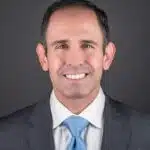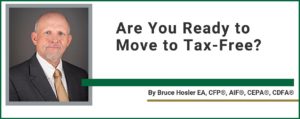The Importance of Proper Asset Titling in Estate Planning
Why Asset Titling is a Crucial Part of Estate Planning
Estate planning involves more than just creating a will or setting up a trust. One of the most overlooked but critical aspects of estate planning is proper asset titling. How you title your assets determines who inherits them, how they are taxed, and whether they go through probate. Improper titling can lead to unintended financial consequences, including excessive tax liabilities, legal disputes, and complications for your loved ones.
In this episode of Protecting and Preserving Wealth, we discuss why asset titling is one of the most overlooked yet essential aspects of estate planning.
What is Asset Titling & Why Does It Matter?
Asset titling refers to the legal ownership structure of your assets. The way an asset is titled dictates how it will be distributed upon your passing. Proper titling ensures that your estate plan functions as intended, while incorrect titling can create major legal and tax problems for your heirs.
The Impact of Asset Titling:
✔ Determines who inherits your wealth – Assets may bypass a will or trust based on their titling.
✔ Avoids or triggers probate – Proper titling can prevent probate delays and expenses.
✔ Affects taxation – The way an asset is titled determines its tax treatment upon transfer.
Different Types of Asset Titling
Understanding the various types of ownership structures is key to making the right estate planning decisions:
- Sole Ownership – Only one person owns the asset, and it goes through probate unless a beneficiary is designated.
- Joint Tenancy with Rights of Survivorship (JTWROS) – Ownership automatically transfers to the surviving owner.
- Tenancy in Common – Each owner has a separate interest in the property, which can pass to their heirs.
- Community Property (in certain states) – Provides unique tax advantages for married couples.
- Trust Ownership – Assets are held in a trust to bypass probate and streamline inheritance.
Common Asset Titling Mistakes & How to Avoid Them
❌ Mistake #1: Assuming Joint Ownership is the Best Option
Many married couples assume joint ownership is the best way to protect their assets. However, some assets—such as IRAs—must be held in an individual’s name to maintain tax advantages. Instead of joint ownership, it is often better to name a spouse as the primary beneficiary.
❌ Mistake #2: Failing to Take Advantage of Community Property Laws
Certain states, like Arizona, have community property laws that provide substantial tax benefits. If a couple holds property as joint tenants instead of within a community property trust, they may lose out on these benefits, leading to higher capital gains taxes when the property is sold.
❌ Mistake #3: Not Using Trusts for High-Value Assets
High-value assets such as investment accounts, rental properties, and businesses should often be held in a revocable living trust to: ✔ Avoid probate ✔ Ensure a smooth transfer of ownership ✔ Provide tax advantages
❌ Mistake #4: Incorrect Titling of Brokerage Accounts
If an investment portfolio is held jointly, the surviving spouse may only receive a partial step-up in basis, resulting in higher taxes when selling the assets. Moving these accounts into a trust can help minimize the tax burden.
Proper asset titling is a crucial component of a successful estate plan. A few strategic changes today can save your heirs time, money, and stress in the future.
It’s never too late to consult an estate planning expert if you’re unsure whether your assets are titled correctly. Ensure your wealth is protected and your financial legacy is passed down seamlessly. Call either of our offices, and a team member will gladly answer any questions regarding this complex yet crucial subject.
For more information about anything related to your finances, contact Bruce Hosler and the team at Hosler Wealth Management.
Call the Prescott office at (928) 778-7666 or our Scottsdale office at (480) 994-7342.
To view all Protecting and Preserving Wealth Podcast episodes: https://www.hoslerwm.com/all-podcast-episodes/
Limitation of Liability Disclosures: https://www.hoslerwm.com/disclosures/#socialmedia
Copyright © 2022-2025 Hosler Wealth Management LLC, All Rights Reserved. #ProtectingWealthPodcast #ProtectingandPreservingWealthPodcast #HoslerWealthManagement #BruceHosler
Guest Profile

Alex Koury CFP®, CERTIFIED FINANCIAL PLANNER® professional and Wealth Manager in Scottsdale, has worked in the financial services industry for fifteen years as a financial advisor and Financial Planner. He holds Series 7, 9, 10 & 66 securities registrations– and is a Registered Representative with Commonwealth Financial Network®.
Guest Profile

Jason Hosler holds Series 7 and 66 FINRA securities registrations. He brings a technological edge to our firm and helps many of our clients stay current in the fast-moving age of the internet.
Podcast Host

Bruce Hosler is the founder and principal of Hosler Wealth Management, LLC., which has offices in Prescott and Scottsdale, Arizona. As an Enrolled Agent, CERTIFIED FINANCIAL PLANNER® professional, and Certified Private Wealth Advisor (CPWA®), Bruce brings a multifaceted approach to advanced financial and tax planning. He is recognized as a prominent financial professional with over 28 years of experience and a seven-time consecutive *Forbes Best-In-State Wealth Advisor in Arizona. Bruce recently authored the book MOVING TO TAX-FREE™ Strategies For Creating Tax-Free Retirement Income And Tax-Free Lifetime Legacy Income For Your Children. www.movingtotaxfree.com.
In the Protecting & Preserving Wealth podcast, Bruce and his guests discuss current financial topics and provide timely answers for our listeners.
If you have a topic of interest, please let us know by emailing info@hoslerwm.com. We welcome your suggestions.
*2018-2024 Forbes Best In State Wealth Advisors, created by SHOOK Research. Presented in April 2024 based on data gathered from June 2022 to June 2023. 23,876 were considered, 8,507 advisors were recognized. Not indicative of advisor’s future performance. Your experience may vary. For more information, please visit.
Transcript
Titling Your Assets Correctly – Estate and Legacy Planning – Part 3 of 6
Speakers: Jon Gay, Bruce Hosler, Jason Hosler, & Alex Koury
[Music Playing]
Jon Gay (00:08):
Welcome back to Protecting and Preserving Wealth. I’m Jon Gay, I’m joined by Jason Hosler, Bruce Hosler, and Alex Koury of Hosler Wealth Management. Great to be with all three of you today.
Jason Hosler (00:16):
Good morning, Jon.
Bruce Hosler (00:18):
Good morning, Jon.
Alex Koury (00:19):
Hey Jon, good morning.
Jon Gay (00:19):
Our series on estate and legacy planning, in our previous episode, we talked about beneficiary designations. Today, we’re talking about something just as important, and that’s titling your assets correctly. Where do we start here, Bruce?
Bruce Hosler (00:32):
Well, Jon, the first thing is that we want to make sure that where we have our money in the different buckets and types, that we’ve titled it correctly so that it doesn’t come back to bite us at some time, either when we have a change in health or we pass away, or whatever like that.
And the first one that I run into a lot of times is with couples, and they’ve been married a long time, they hold everything jointly in their minds, but somehow, they cannot get past the idea that an IRA is an individual retirement account.
Jon Gay (01:11):
That’s the I (chuckles).
Bruce Hosler (01:12):
That is the I. And they think, “Well, why can’t we just put this in a joint account because it’s both of our money?” And the answer that we have for that is: it is both of your money, but the way you do that is differently than in titling the asset.
You hold that money in one individual name, but you name the spouse as the primary beneficiary, and then all of the same rights and ownership can be rolled over, if you will, at the passing of either one of the spouses, and they can continue that IRA as their own and treat it as their own. And so, that’s how we get over the joint ownership struggle that people think mentally about individual retirement accounts.
Now, in Arizona here, we are a community property state, and there are nine community property states in the United States. And a lot of people don’t realize that this is a tax benefit, that when one of the spouses dies, the other spouse will receive a 100% step up in basis. Let me just give you an example.
I have a lot of clients that have moved in from California or other states to Arizona, and they may buy the house and put it in their joint names, and that is a mistake. Let’s just say that they buy the house 20 years ago for $500,000, and today, the same house is worth $1.5 million — all that appreciation, that million dollars of appreciation, when the first spouse dies, and we’re going to pick on the guys because the guys tend to go first and the ladies, they’re tougher, they last longer.
Jon Gay (02:51):
Absolutely, statistically and anecdotally.
Bruce Hosler (02:55):
Yes, yes, yeah, just go to a nursing home, 97 women, three happy little guys being chased by all those women. But my point is that million dollars of appreciation if they hold it jointly, even though they’re in a community property state, she only gets a step up on his half. She does not get a step up on her half.
So, his step up, there’s a $500,000 appreciation. So, if they bought it for $500,000, her share is 250, his cost base is 250, she gets another $500,000. Now, her cost basis is $750,000, but the house is worth $1,500,000.
He died, so she’s single. So, her Section 121 exclusion on the house is $250,000. So, that takes her up to a million. She still has potentially a $500,000 capital gain on the house.
Jon Gay (03:49):
Bruce mentioned the community property states, I know we’ve got listeners and viewers in more than just Arizona. Very quickly, those community property states are Arizona, California, Idaho, Louisiana, Nevada, New Mexico, Texas, Washington State, and Wisconsin.
Jason Hosler (04:03):
All of that could have been avoided if they just had good advice on how to hold title to that primary residence properly. Oftentimes, we’ll advise our clients in meeting with an attorney to make sure that they get that community property language in the trust so that when a trust owns your primary residence, it applies those community property rules.
Now, there are ways to hold joint property with community property rights in Arizona outside of a trust, but a trust has the additional advantage of avoiding probate.
Alex Koury (04:37):
I’ve heard from other attorneys sometimes, if they don’t feel your estate’s big enough and we’re talking estate limits of $13.6 million today per person, that you shouldn’t use a trust, it’s not worth it.
We’re not talking very much money to cover your basis for yourself and your family and your estate to avoid really, in this instance, like Jason just said, is probate, primarily or missing a step up in cost basis to make it a tax-free asset. The benefits far outweigh the cost when it comes to why we want to set things up a specific way. So, if you’re getting advice like that, you may want to get a second opinion.
Jason Hosler (05:15):
The other thing, Alex, around that too, is if you have a lot of different accounts, you’ve got some IRAs, you’ve got some Roths, you’ve got a brokerage account, you’ve got a pension — there’s a lot of different places that you’re having to manage who you’re leaving it to, and then what amounts, and do they all match across the board?
When you have it in a trust and you have property that you’re able to rightly title in that trust, it takes care of it all in one document.
Alex Koury (05:42):
Agreed.
Bruce Hosler (05:43):
So, the other problem that we see frequently is we have couples that come to us, and they have gone to their broker and the broker has opened up a joint brokerage account, and they’ve held this forever, and they have stocks or mutual funds or ETFs that have appreciated greatly, and yet it’s in a joint brokerage account. And if they have a joint like that, again, they only get a half step up, they don’t get a full step up when someone passes away.
So, frequently, we run into couples that need to move that joint brokerage account into a trust account. And by the way, there is no way to get the community property with rights of survivorship without using a trust in Arizona. So, that’s why if we have clients with big taxable accounts that are jointly held, they need to get a trust to get that full step up in basis.
Alex, we’ve had some of those situations like that. Just share some of your thoughts on what we see happening like this. The couple comes in, they think they own it jointly and they’ve done everything right, and when we tell them this, what is their reaction, Alex?
Alex Koury (06:53):
Well, their reaction immediately is to get it fixed.
Jon Gay (06:56):
(Laughs).
Alex Koury (06:58):
You had it done a certain way and you did yourself a good deal of protecting yourself to some limits, that’s good. But to be great, to be thorough, everyone kind snaps in a line of, “Well, what do I need to do? What do I need to get done? Who do I need to speak to in order to set up a trust?”
And that’s why we work hand in hand with our clients to meet with the state attorneys, go through the process with them, make sure that the attorneys are drafting documents correctly. That way, it all flows through together in all aspects of their financial lives and affairs. It’s been very, very, very rewarding, and you I think take it for granted about what we know as financial advisors in our industry.
We had a mid-eighties couple come in not too long ago that doesn’t even have their trust yet. And we’re finally working with them on getting this done. So, the other thing I’d say is, it’s never too late no matter how old you are to get your trust and estate in order.
Bruce Hosler (07:51):
As people are working with the attorneys, we work with the attorneys, with our clients, and that’s an important step that we do to make sure that they get everything done. And one of the keys when we’re working with attorneys that we look for is attorneys that work on a flat fee basis, and they will also fund the trust.
And Jason, talk to our listeners about funding the trust and what that involves, and what they need to be concerned with doing on funding their trust.
Jason Hosler (08:21):
In a lot of cases, attorneys who don’t take care of funding the trust, what they’re doing is they’re providing the set of documents, the trust, all the powers of attorney and other ancillary documents, and the client gets it in a binder and they go and they set it on their shelf and they’re like, “Okay, well check that one off the list.”
But it’s not really done because guess what? That house that they bought when they moved here is still titled in joint names. No one’s gone to the title company and updated that title so that the trust holds that title.
So, that’s what Bruce is alluding to when he says fund the trust. The attorney who will actually go, they’ll get the title company, they’ll pay them, they’ll retitle that piece of property into the name of the trust.
Jon Gay (09:04):
We’re spending a lot of time talking about the benefits of trust, and in a moment, I want to get to what should go into your trust. But let me throw you a curve ball first and ask what assets should not be titled in a trust?
Alex Koury (09:15):
So, what should not be in a trust typically are cars. We come across that every once in a while: “Hey, we need to take everything that we own, of value, and put it somewhere.” So, cars are one of those areas.
Primary checking accounts where you have your daily transactions going in and out of the account, that doesn’t necessarily need to be tied up in a trust. You can use the transfer on death or payable on death beneficiary designations that you can add to those accounts by going down to your bank and adding your beneficiaries directly onto those.
Because ultimately, at the end of the day, what happens is in addition to your trust, there’s also a pour-over will that’s used. So, if there are any missing assets that would go in the trust, think of it just like pouring a pitcher of water into an empty glass. You’re going to pour over; we’re going to capture all those other little assets anyways.
You’ll be changing out cars as well. You don’t necessarily need to have those things in your actual trust account. They’ll be covered through that pour-over will like I just mentioned.
Bruce Hosler (10:12):
The DMV now has the ability to add a beneficiary designation to the title of your car. So, since you’re buying cars and selling cars, putting it in your trust is a hassle.
The other thing that the insurance agent brought up to me was you get in a car accident, you pull out your insurance, and what does it say the owner of the car is? Big, fat rich trust name company. And so, the other attorney on the other side of the car accident is thinking, okay, I got a trust to go after on this. And you really don’t want to show that as really the owner of your vehicle.
Jon Gay (10:48):
That’s a great point.
Bruce Hosler (10:49):
So, you want to minimize what the other company or the other party is going after from an appearance sake. So, you can use, like Alex said, the POD, pay on death on your checking accounts that you use, and then again, on the DMV.
Jon Gay (11:05):
Alright, so those are things you do not want on the trust, and boy, that car accident is quite the visual. I’m picturing it in my mind’s eye as you explained it, Bruce. What assets should be in the trust?
Jason Hosler (11:15):
Well, Jon, definitely a home. Your primary residence, you want to have that in the name of your trust to take advantage of community property and to be able to split it up among your heirs, avoid probate.
Other real estate, if you own rental or commercial property, often, we’ll see that there’s a single purpose LLC for each property. And then the LLC is owned by the trust. The trust is the member of the LLC.
Taxable investments, so if you have savings outside of retirement accounts and you’ve invested, you’ll want to title that in the name of your trust. Again, take advantage of community property here in Arizona, and other individual assets such as businesses.
Bruce Hosler (11:59):
So, yeah, it’s the same thing. Your business is in the LLC, but the member of the LLC, your business, is your trust. That’s how you title your business inside of your trust. So, heaven forbid you or your spouse pass away, the huge gain that you’ve had in that business over the last 20 or 30 years, the family doesn’t have to pay any taxes on that or the surviving spouse, more importantly, doesn’t have to.
I mean, think of that tax move. You start the business from nowhere, you and your spouse work for years, you build it up in value, and when the first one passes away, that surviving spouse potentially could have millions of dollars of taxable event. And to get that 100% tax-free, it is a huge benefit to be able to title your business inside of your revocable living trust.
Jon Gay (12:53):
Says the man who wrote the book Moving to Tax-Free, well done (laughs).
Bruce Hosler (12:56):
That’s right, that’s right.
Jon Gay (12:58):
What about personal assets in terms of the trust?
Alex Koury (13:00):
Gold coins, collectibles, guns, art, those all can go in your trust as well. You’re not going to be technically … for the most part, you’re going to be holding onto these assets for long-term appreciation. They’ll be inherited and passed on at some point in the future.
We’ve got clients that will set up a gun trust in particular, so you can have all your gun assets into one trust as one example of that. But yeah, we want all those types of assets to go into that. That way, you avoid probate. We want to avoid any type of stake of claim against your estate, against your assets to go through the public process.
Bruce Hosler (13:36):
So, one of the things that’s important if you’re trying to give those to a specific beneficiary, inside of your trust, will be schedules where you can list out all those assets and kind of who they’ll go to. So, those that are of more value of your personal effects, like Alex was saying: guns, coins, collectibles art, you want to make sure you’ve listed those in your trust documents.
Jon Gay (14:01):
Got it. If one of our listeners or viewers wants to contact you and the team at Hosler Wealth Management, how do they best find you?
Bruce Hosler (14:07):
Jon, they can reach us on the website at hoslerwm.com.
Jason Hosler (14:12):
In Prescott, they can call (928) 778-7666
Alex Koury (14:17):
And here in Scottsdale, (480) 994-7342.
Jon Gay (14:24):
Excellent job gentlemen. As always, appreciate the information. It’s so important to have all your ducks in a row when it comes to legacy and estate planning. We’ll talk to you again in a couple of weeks.
Jason Hosler (14:32):
Sounds good, Jon. Thanks.
Bruce Hosler (14:34):
Thanks, Jon.
Alex Koury (14:35):
Thanks, Jon.
[Music Playing]
Disclosure (14:36):
Securities and advisory services offered through Commonwealth Financial Network, member FINRA/SIPC, a registered investment advisor. Forward-looking commentary should not be misconstrued as investment or financial advice. The advisor associated with this podcast is not monitored for comments and any comments should be given directly to the office at the contact information specified.
Any tax advice contained in this communication, including any attachments, is not intended or written to be used and cannot be used for the purpose of 1) avoiding federal or state tax penalties, or 2) promoting marketing or recommending to another party any transaction or matter addressed herein.
The accuracy, completeness, and timeliness of the information contained in this podcast cannot be guaranteed. Commonwealth Financial Network does not provide legal or tax advice. You should consult a legal or tax professional regarding your individual situation.
Accordingly, Hosler Wealth Management, LLC, does not warranty, guarantee or make any representations or assume any liability with regard to financial results based on the use of the information in this podcast.
Comments are closed.


